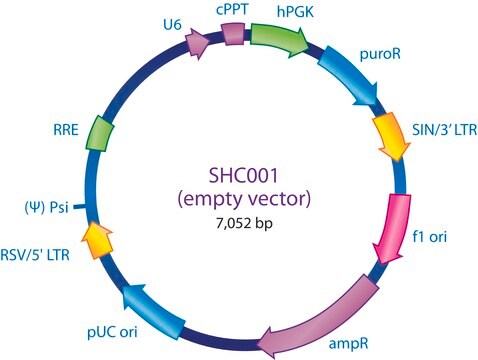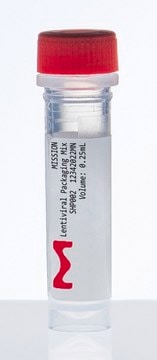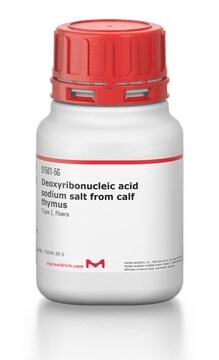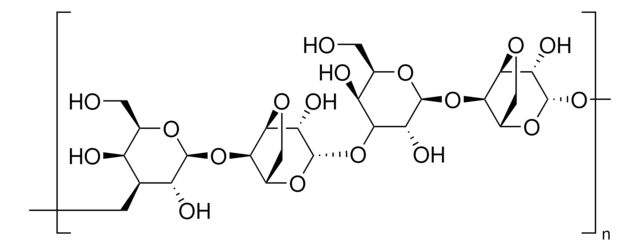D9893
pBR322 Plasmid DNA from E. coli RRI
lyophilized powder
About This Item
Produits recommandés
Source biologique
Escherichia coli
Niveau de qualité
Qualité
for molecular biology
Forme
lyophilized powder
Poids mol.
2.9 MDa
4363 bp
Température de stockage
2-8°C
Vous recherchez des produits similaires ? Visite Guide de comparaison des produits
Description générale
The plasmid has unique restriction sites within the gene for ampicillin resistance (Pst I, Pvu I, and Sca I), within the gene for tetracycline resistance (BamH I, BspM I, EcoR V, Nhe I, Nru I, Sal I, Sph I, and Xma III), and elsewhere (Aat II, Ava I, Bal I, Bsm I, BspM II, Cla I, EcoR I, Hind III, Nde I, Pvu II, Ssp I, Sty I, and Tth111 I).
Spécificité
Application
Actions biochimiques/physiologiques
Composants
Autres remarques
Produit(s) apparenté(s)
Code de la classe de stockage
11 - Combustible Solids
Classe de danger pour l'eau (WGK)
WGK 3
Point d'éclair (°F)
Not applicable
Point d'éclair (°C)
Not applicable
Équipement de protection individuelle
Eyeshields, Gloves, type N95 (US)
Certificats d'analyse (COA)
Recherchez un Certificats d'analyse (COA) en saisissant le numéro de lot du produit. Les numéros de lot figurent sur l'étiquette du produit après les mots "Lot" ou "Batch".
Déjà en possession de ce produit ?
Retrouvez la documentation relative aux produits que vous avez récemment achetés dans la Bibliothèque de documents.
Les clients ont également consulté
Notre équipe de scientifiques dispose d'une expérience dans tous les secteurs de la recherche, notamment en sciences de la vie, science des matériaux, synthèse chimique, chromatographie, analyse et dans de nombreux autres domaines..
Contacter notre Service technique










